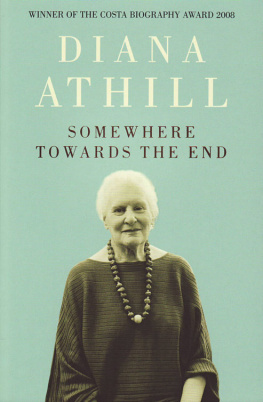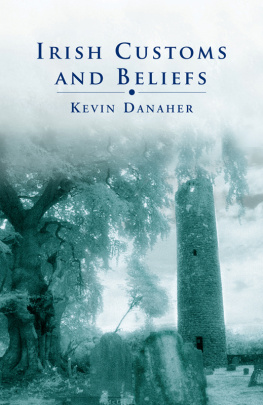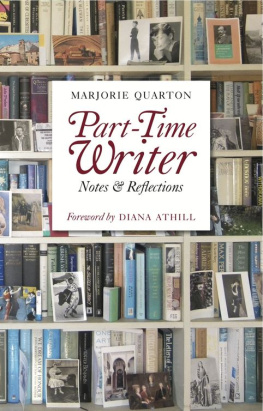For Sally, Henry, Jessamy and Beauchamp Bagenal
It aint no sin
To take off your skin
And dance about
In your bones.
Edgar Leslie
N EAR THE PARK which my bedroom overlooks there came to stay a family which owned a pack of pugs, five or six of them, active little dogs, none of them overweight as pugs so often are. I saw them recently on their morning walk, and they caused me a pang. I have always wanted a pug and now I cant have one, because buying a puppy when you are too old to take it for walks is unfair. There are dog-walkers, of course; but the best part of owning a dog is walking with it, enjoying its delight when it detects the signs that a walk is imminent, and its glee when its lead is unsnapped and it can bound off over the grass, casting cheerful looks back at you from time to time to make sure that you are still in touch. Our own dog is as old in dog years as I am in human ones (mine amount to eighty-nine), and wants no more than the little potter I can still provide, but I enjoy watching other peoples animals busy about their pleasures.
Brought up with dogs, I am baffled by those who dislike them. They have been domesticated for so long that cohabiting with us is as natural to them as the jungle is to the tiger. They have become the only animal whose emotions we can truly penetrate: emotions resembling our own excepting in their simplicity. When a dog is anxious, angry, hungry, puzzled, happy, loving, it allows us to see in their purest form states which we ourselves know, though in us they are distorted by the complex accretions of humanity. Dogs and humans recognize each other at a deep and uncomplicated level. I would so like to begin that process all over again with a little black-velvet-faced pug but no! It cant be done.
And another thing that cant be done became apparent this morning. I had seen in Thompson & Morgans plant catalogue a photograph of a tree fern which cost 18, reasonable for something so exotic. A few years ago I fell in love with the tree ferns in the forests of Dominica, and since then I learnt that they, or their cousins, can survive in English gardens, so now I ordered one from that catalogue by phone. It arrived today. Of course I knew that I would not receive a mature tree as shown in the photograph, but I was expecting a sizeable parcel, probably by special delivery. What came, by ordinary post, was a box less than twelve inches long containing a three-inch pot, from which four frail little leaves are sprouting. Whether tree ferns grow quickly or slowly I dont know, but even if it is quickly, it is not possible that I shall ever see this one playing the part I envisaged for it in our garden. I shall pot it on towards that end as far as I can, hoping to see it reach a size at which it can be planted out, but virtuous though planting for the future is supposed to be, it doesnt feel rewarding. It made me think of a turn of phrase often used by Jean Rhys, usually about being drunk: I was a bit drunk, well very. She never in fact said I was a bit sad, well very about being old, but no doubt she would have done if she had not hated and feared it too much to speak of it.
Jean was one of my object lessons, demonstrating how not to think about getting old. The prospect filled her with resentment and despair. Sometimes she announced the defiant intention of dyeing her pretty grey hair bright red, but she never did so; less, I think, for the sensible reason that it would have made her look grotesque than because she lacked the energy to organize it. Sometimes very rarely drink made her feel better, but more often it turned her querulous and tetchy. She expected old age to make her miserable, and it did, although once she was immersed in it she expressed her misery by complaining about other and lesser things, the big one itself being too much to contemplate although she did once say that what kept panic at bay was her suicide kit. She had depended on sleeping pills for years and had saved up a substantial cache of them in the drawer of her bedside table, against the day when things got too bad. They did get very bad, but after her death I checked that drawer and the cache was intact.
My second object lesson was the Bulgarian-born, Nobel-Prizewinning writer, Elias Canetti, whose defiance of death was more foolish than Jeans dismay. He had a central Europeans respect for the construction of abstract systems of thought about the inexplicable, which is uncongenial to many English minds, and which caused him to overvalue his own notions to the extent of publishing two volumes of aphorisms. I never met him, but I knew those books because Andr Deutsch Limited, the firm in which I worked, published them. During the long years he spent here as a refugee from Nazi Germany, Canetti had taken so violently against the British, I think because they had failed to recognize his genius (the Nobel Prize was yet to come), that he determined never to be published in this country. However Tom Rosenthal, who took over our firm towards the end of its days, had once done him a kindness which he remembered, so he finally agreed to let us have his books on condition that we began with the two lots of aphorisms and followed the American editions, which he had approved, to the last comma, including the jacket copy. This left his English editor (me) nothing to do except read the books, but that was enough to get my hackles up. Many of the aphorisms were pithy and a few were witty, but as a whole what pompous self-importance! The last straw was when his thinking turned to nonsense and he declared, as he did in several of these snippets, that he rejected death.
Later I came to know a former lover of his, the Austrian painter Marie-Louise Motesiczky, a woman who sailed into her eighties gracefully in spite of much physical pain as a result of a severe case of shingles, and a life-story that might well have flattened her. She deserves more than passing attention.
I met her by chance. Mary Hernton, a friend who was looking for a bedsitter in Hampstead, told me she had found a wonderful room in the house of an extraordinary old woman. The room, though wonderful, was not right for her purposes, but the woman had impressed Mary so much that she had invited her to tea and wanted me to meet her. What was so remarkable about her? I would see when I met her, and anyway Mary thought she had been Canettis mistress: her shelves were full of books owned by him and the room had once been his. I did join them for tea, and I too was impressed by Marie-Louise. She was funny, warm, charming and indiscreet. When she learnt that I published Canetti she became excited, disregarding the fact that I had never met him, and plunged at once into telling me how they had been friends and lovers for over twenty years before she learnt that he had a wife and daughter. She knew it sounded improbable, but she had lived a secluded life looking after her mother, who had come with her to England from Vienna just before Hitler invaded Austria (they were members of a rich and distinguished Jewish family). Her seclusion seemed to have spared her the knowledge of Canettis many other women: she never said anything to me suggesting that she knew about them, only that the revelation of his being married had brought their affair to a sudden and agonizing end. The more she told me, the more it seemed to me that Canetti and her mother, who had died quite recently at a great age, had consumed her life and had left her in emptiness except that there was no real feeling of emptiness about Marie-Louise.
Mary had told me that she thought Marie-Louise painted, but when quite soon I visited her in her large Hampstead house, which was full of interesting objects and paintings, I could see nothing that looked as though it had been done by her. She did, however, make a passing reference to her work, so I asked if I might see some of it. I asked nervously very nervously because nothing is more embarrassing than being shown paintings that turn out to be dreadful. She led me and this boded ill into her bedroom, a large, high-ceilinged room, one whole wall of which was an enormous built-in cupboard. This she opened, to reveal racks crammed with paintings, two of which she pulled out. And I was stunned.







